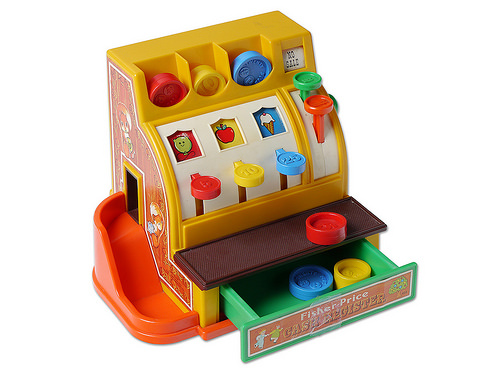It s never too early to develop a healthy relationship with money. We all know now that it’s important to budget your finances to plan for the future and manage expenses, but some of us don’t learn that lesson until later on in life. Starting these conversations with your child while they’re still young is a great way to build a skill set that they’ll use for the rest of their life. It took me a really long time to feel comfortable with my budget and how I handled money, and I can only hope that by teaching my kids to be money-conscious, I can help them to avoid some of the mistakes I’ve made. I’ll be keeping some of the following ideas in mind…
Be a good role model. We lead by example. Show your kids how you take control of your money to plan for future financial stability. We can’t expect them to practice good habits if we can’t hold ourselves to those same standards.
Allow children to be involved. Let your children participate in some of the less serious (but still important) aspects of your family budget. Let them help prepare grocery lists and cut coupons with you. Compare prices in weekly ads. Point out the prices of what you’re buying at the store, and how they fit in to your needs. Compare what you’ve spent to what you allowed for. Seeing these things firsthand is a great learning experience that will help them budget on their own later.
Encourage smart decision-making. Make yourself available and open to discuss what kind of financial decisions your kids might be making (What are you buying at the mall? How much are you spending on fast food? How much money have you saved this summer?). As a parent, you have a responsibility to your child to help them make beneficial decisions to prepare them for financial success. As they get older, talk to them about what they’re doing with their money and encourage discussion about the subject often. Try to offer helpful suggestions while still allowing them to have a bit more control to encourage independence.
Consider giving an allowance, or the opportunity to earn money. Some parents believe kids shouldn’t receive an allowance for completing chores since many of those things are part of living in a household, but it could be a great opportunity to show them that hard work pays off. It can also be an introduction to money management before they go out into the working world and start earning an actual salary. You can make a decision based on your own beliefs, taking into account how old your children are and what you’d be asking of them. Even a minimal denomination could teach them valuable lessons about spending and saving wisely.
Stress the importance of saving. This could be the most important of all. When I was younger and I got my first job, I treated my income in a pretty disposable way – I went out on weekends, bought whatever I wanted, and saved nothing. When I went off to college and had to pay part of my tuition out-of-pocket, I completely wiped out what little I did have saved (which was mostly contributions from my parents). I was broke and utterly overwhelmed. No one had ever told me to keep something stashed away in case of emergencies, so I basically lived paycheck to paycheck and hoped for the best. If I would have known about how vital it would be as a young adult new to the world of bills and responsibilities, I would have put way more effort into saving more and spending less. The sooner you talk to your kids about this, the better – you’ll better prepare them for the road that lies ahead.
Turn it into a game. Most of us grew up with toy cash registers and played “store,” and we’ve all played board games like Monopoly, both of which introduce the idea of handling money to children. There are even more similar opportunities available now with technology, and there are a ton of apps and online games available to help teach kids the value of a dollar. Use these techniques with younger children as a precursor to dealing with actual cash.
Do you talk about money and finances with your child? Why or why not?

